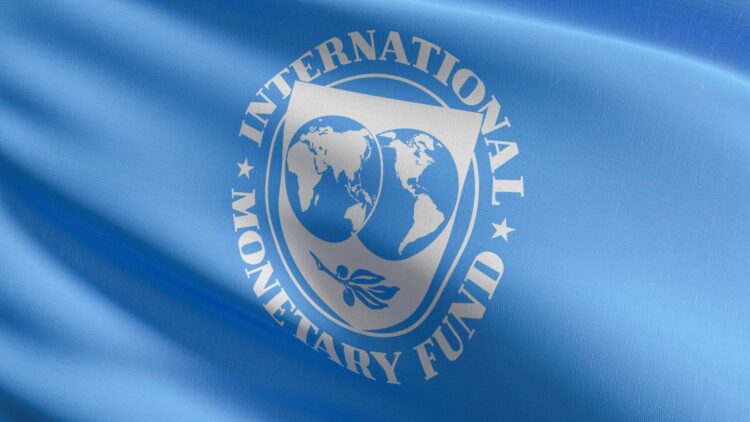A recent IMF release highlights the difficulty of making more accurate forecasts due to a global scenario in which economic recovery still faces significant obstacles, even after signs of improving financial conditions. The Fund emphasizes that isolated advances do not eliminate the pressure caused by persistent trade tensions, nor do they reduce the impact of the slowdown in large economies.
Trade uncertainty still looms over global recovery
The International Monetary Fund warned on Friday that risks related to trade tensions continue to cloud the global economic outlook and uncertainty remains high despite some increased trade and improved financial conditions. IMF First Deputy Managing Director Gita Gopinath said the fund would update its global forecast later in July given “front-loading ahead of tariff increases and some trade diversion,” along with improved financial conditions and signs of continued declines in inflation.
In April the IMF slashed its growth forecasts for the United States, China and most countries, citing the impact of U.S. tariffs on imports now at 100-year highs and warning that rising trade tensions would further slow growth. At the time, it cut its forecast for global growth by 0.5 percentage points to 2.8% for 2025, and by 0.3 percentage points to 3%. Economists expect a slight upward revision when the IMF releases an updated forecast in late July.
Gopinath told finance officials from the Group of 20 major economies who met this week in South Africa that trade tensions continued to complicate the economic outlook. “While we will update our global forecast at the end of July, downside risks continue to dominate the outlook and uncertainty remains high,” she said, in a text of her remarks. She urged countries to resolve trade tensions and implement policy changes to address underlying domestic imbalances, including scaling back fiscal outlays and putting debt on a sustainable path.
Policy coordination becomes crucial amid fragile market conditions
The IMF’s assessment following recent consultations with the United Kingdom reinforces how fiscal and monetary adjustments need to be tailored to each national reality. In the British case, for example, the Fund warned of the need to reduce excessive public spending and control debt, while maintaining incentives to sustain growth. This type of recommendation exemplifies the differentiated approach the IMF advocates to avoid additional shocks in already vulnerable economies.
Gopinath also underscored the need for monetary policy officials to carefully calibrate their decisions to specific circumstances in their countries, and stressed the need to protect central bank independence. This was a key theme in the G20 communique released by finance officials. Gopinath said capital flows to emerging markets and developing economies remained sluggish, but resilient, in the face of increased policy uncertainty and market volatility. For many borrowers, financing conditions remained tight.
In addition to monitoring capital flows, the IMF highlighted that emerging markets remain particularly exposed to global fluctuations, especially in a context of prolonged high interest rates. Although some economies have shown resilience, the combination of persistent inflation and exchange rate volatility limits their ability to attract investment and increases the risk of liquidity crises.
Debt sustainability and the push for broader restructuring tools
For countries with unsustainable debt, proactive moves were essential, Gopinath said, repeating the IMF’s call for timely and efficient debt restructuring mechanisms. More work was needed on that issue, including allowing middle-income countries to access the G20’s Common Framework for Debt Restructuring, she said.
Strengthening global tools for fairer debt resolution
In this context, the institution argues that expanding the scope of restructuring mechanisms is vital to prevent middle-income economies from entering cycles of prolonged default. The IMF argues that reform of the Common Framework should be accompanied by greater transparency in negotiations with private creditors and greater support from advanced economies.

